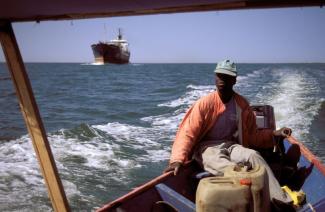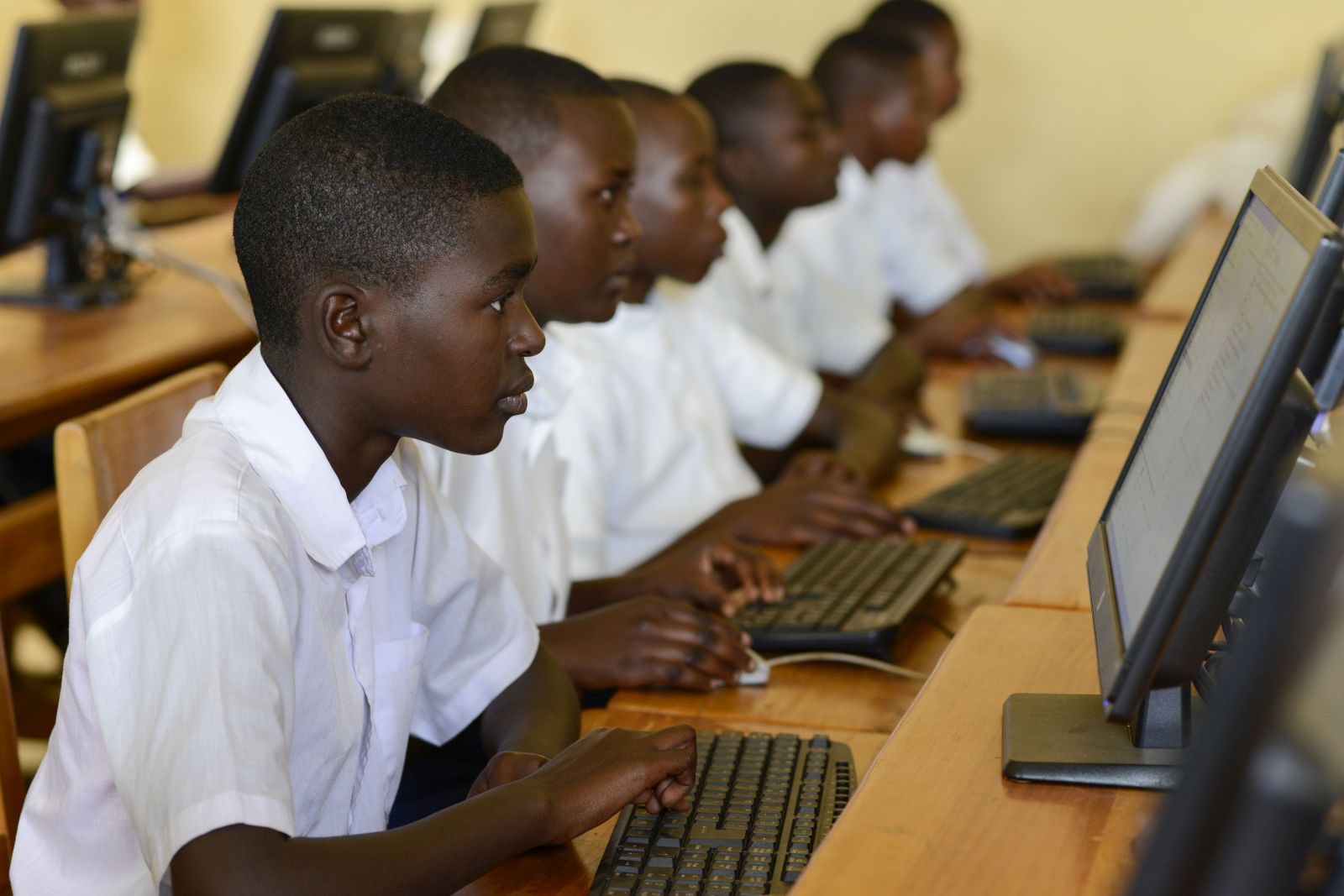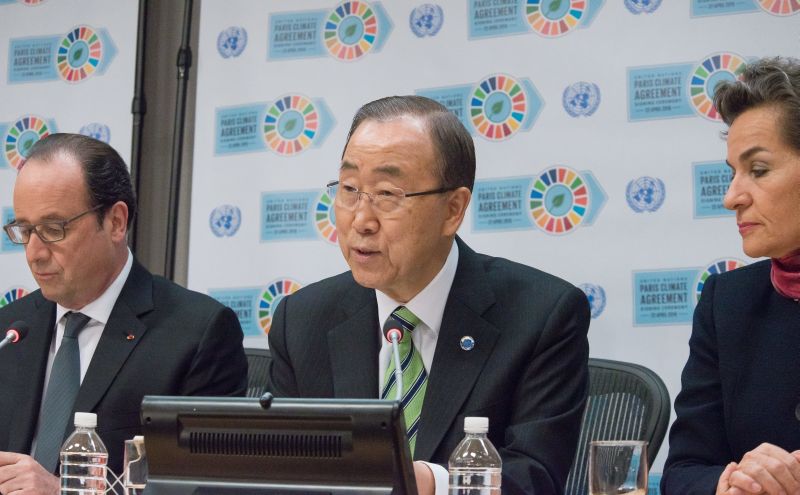Institutional order
Outdated settings

There has been some progress in the global arena. Examples include the Millennium Development Goals (2000) and their successors, the Sustainable Development Goals (2015), the Paris Declaration on Aid Effectiveness (2005) and the Paris Agreement concerning climate change (2015). Nonetheless, there are undesirable developments as well, and they are becoming increasingly irritating.
Reversing this trend must begin in Europe. Today, every EU member nation is pursuing a foreign, security and development policy of its own. These national policies must become a single, common policy in the future. Otherwise, the EU will not be able to exert influence in multilateral organisations – such as the UN, the World Bank, the International Monetary Fund (IMF) or the Asian Infrastructure Investment Bank, the recent establishment of which was promoted by China. The EU must speak with one voice. With Donald Trump in the White House, moreover, the EU will no longer be able to rely on the west’s leading power sorting things out reasonably.
So far, development policies focus on egotistical national concerns. Donor countries – including the EU members – have still not harmonised their action through coherent international reforms as would fit the Paris Declaration on Aid Effectiveness. At the same time, new donors such as China, India and Brazil are questioning the OECD rules. Even though these new donors show only little interest in the Aid Effectiveness criteria, many partners in Asia, Africa and Latin America accept their approach, whilst criticising the failure of the established donors to comply ever more often and ever more openly.
The challenges Europe will face in the next decades require fundamental reforms. Conventional development aid for poor countries will still be necessary for some time. However, those countries’ integration into regional and global markets should become ever more successful. For the sake of the global commons, donor governments must not remain focused on reducing poverty. Strategic investments to safeguard global public goods are needed. Relevant issues include deforestation, overfished oceans, the stability of financial markets or climate change. Other important matters are the promotion of human rights and good governance as well as the fight against corruption. Unfortunately, they no longer pertain to overseas development. Today, democracy and human rights must be defended within the EU itself.
Reforms are necessary, particularly in Europe, and not only in regard to official development assistance (ODA). They are needed in other fields of policy-making as well. The fragmentation of international cooperation efforts keeps getting worse, which is anachronistic, inefficient and costly. Due to national self-interests, there are countless agencies, some two dozen development banks and hundreds of multilateral programmes. Such complexity does not deliver convincing results.
It would make sense to transfer the competence for bilateral ODA to the European Commission in Brussels. EU members should follow the suggestion of Michel Camdessus, the former managing director of the IMF, and set up a European development bank. Its nucleus – or model – could be Germany’s KfW. The European Bank for Reconstruction and Development (EBRD) and the European Investment Bank (EIB) should be merged into this new institution.
The national development agencies of EU members would no longer be recipients of funding from their governments. Instead, they would compete in tenders for the implementation of international projects. Competition serves quality, as is well understood. Obviously, strong and successful national agencies such as Germany’s GIZ could work on behalf of the EU.
In Germany, the Foreign Office and the Federal Ministry for Economic Cooperation and Development (BMZ) should be replaced by a new ministry. The jurisdiction of this new department would be national coordination of all issues of global policymaking, including responsibility for ODA resources and conventional foreign policy. It would also be responsible for cooperation with international non-governmental organisations.
In many respects, the new ministry would be more like the current BMZ than the current Foreign Office. After all, its most important task would not be to represent specifically German interests. Its mandate would be to promote the international common good. In any case, the foreign policies of individual EU members will become increasingly irrelevant the more European foreign policy becomes a common one and is represented by the European diplomatic service.
Sceptics may argue that it is an illusion to think the EU can adopt a common foreign policy in times of growing populism. As evidence, they will point to Britain’s vote to leave the EU in the referendum in June. However, the notion that 28 nation states – each one on its own – will influence the ongoing global change in a way that serves particular national interests is absurd. Yes, Brexit is a setback for the EU, but it may yet prove to be an opportunity. For example, London has always resisted closer military cooperation in the EU context. Military cooperation is a difficult and controversial issue, but it must be considered carefully in the light of a common foreign, security and development policy.
In relation to development affairs, efficacy and efficiency matter more than the sheer volume of funding. The obsessive interest in raising ODA expenditure to 0.7 % of gross national income is not helpful. Instead, all donor governments, including the “new” ones, should commit to investing five percent of their national budgets in international projects, especially in safeguarding global public goods.
At the same time, the effectiveness of ODA must finally be measured and evaluated better. So far, nations are basically evaluating their own efforts with questionable methods. Instead, partner countries and independent international experts should carry out impact analyses of development programmes according to uniform standards.
True partnership and responsible ownership must replace donors’ developmental paternalism. Recipient countries increasingly reject the ODA approaches of OECD countries, and the criticism of African researchers and government officials cannot be simply ignored. It is bizarre that country desks of donor governments sometimes have more influence on the development of far-away countries than the national authorities of those places. Budget support (especially to promote specific sectors) and joint financing must be prioritised over conventional cooperation programmes and projects. Moreover, transparency and accountability must improve.
Eckhard Deutscher is the former chairman of the Development Assistance Committee (DAC) of the OECD and a former executive director of the World Bank.
Erich Stather was the state secretary of Germany’s Federal Ministry for Economic Cooperation and Development (BMZ) from 1998 to 2009.
eddst@t-online.de










